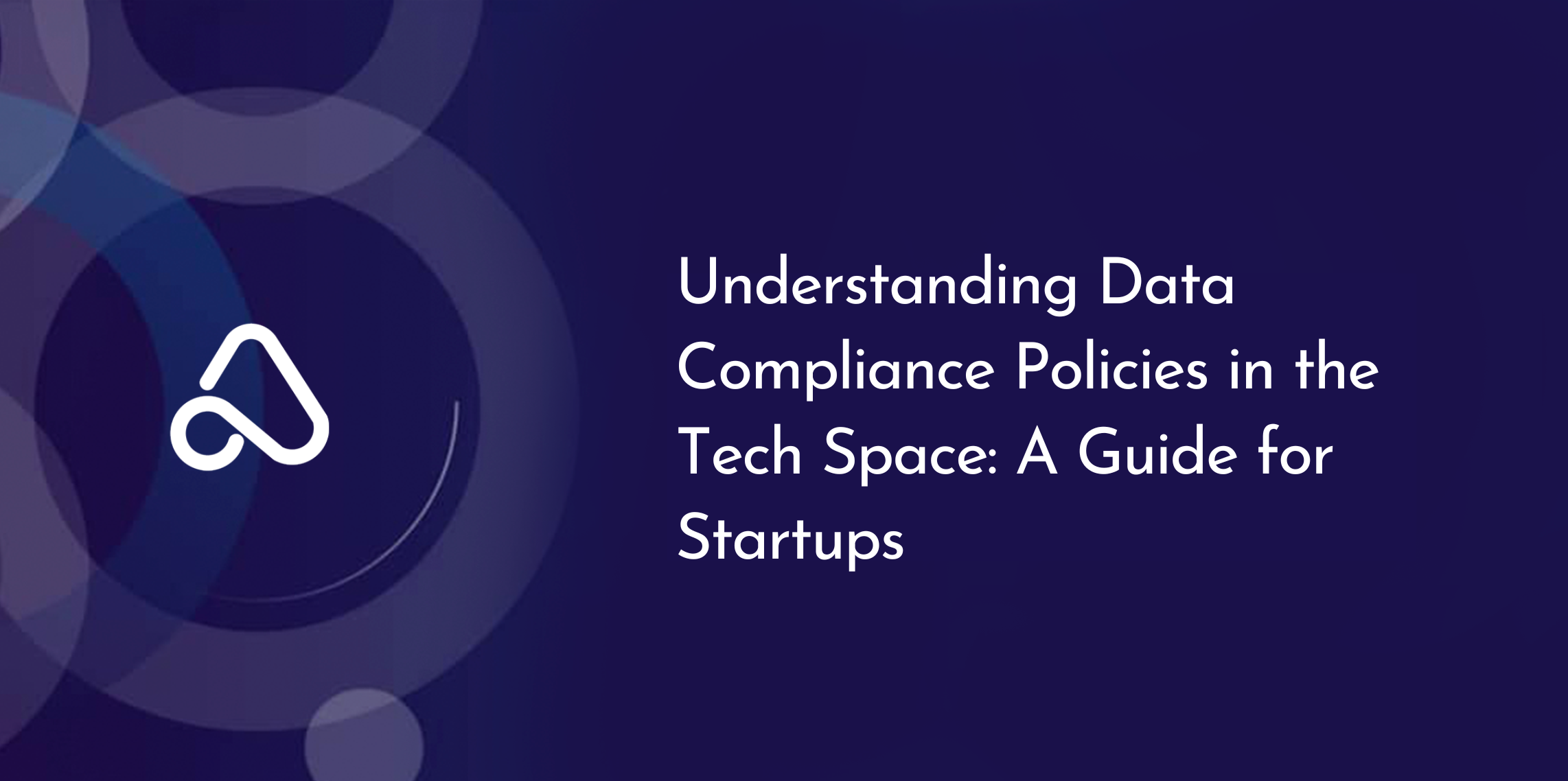Aidi — Understanding Data Compliance Policies in the Tech Space: A Guide for Startups
Return
Data compliance refers to the policies and standards that govern how companies handle and manage personal and sensitive information. For tech startups, data compliance is essential to maintaining customer trust, safeguarding the company’s reputation, and avoiding costly legal penalties.
In today’s tech-driven world, data is a powerful asset to startups, which helps them gain valuable insights into their customers’ behaviours and make better business decisions. Every day, millions of people around the world leave a trail of their data when they browse through websites, download digital apps, or interact online. While these data are useful to companies, if proper regulations are not put in place to protect the data of these individuals, their data can be breached, making them vulnerable to cyberattacks.
For tech startups, data compliance is not optional. Understanding and adhering to data compliance policies is not only essential for avoiding legal trouble but also crucial for building trust with your customers and partners. As technology continues to evolve, the list of data regulations increases. Below are some of the most important policies every startup should know:
- GDPR (General Data Protection Regulation): The GDPR is a European Union regulation to protect the privacy and personal data of European Union citizens. GDPR mandates companies to obtain clear consent from users before collecting their data, provide users with the right to access and delete their data, and ensure robust security measures are in place to prevent data breaches. Even if your company is not based in the European Union, GDPR applies if you handle data from its citizens. Startups must review and implement processes to ensure data transparency, security, and consent. Non-compliance can result in fines of up to 4% of global annual revenue.
- CCPA (California Consumer Privacy Act): The CCPA is a California-based law designed to give residents more control over their personal information. Under CCPA, companies must disclose what personal data they collect, give consumers the option to opt out of data selling and allow users to delete their data. CCPA applies if your startup collects data from California residents or has gross revenues over $25 million, among other thresholds.
- HIPAA (Health Insurance Portability and Accountability Act): HIPAA is a U.S. law designed to protect sensitive health information. HIPAA mandates strict standards for data encryption, access control, and breach notification, especially when handling medical records or health data. If your startup handles any health-related data, compliance with HIPAA is a must. This can include startups in telemedicine, wellness, or any platform dealing with personal health information.
- SOX (Sarbanes-Oxley Act): SOX is a U.S. law focusing on corporate financial records. SOX requires data integrity and retention policies to ensure that companies maintain accurate and secure financial data. SOX compliance may only apply to public companies, but startups seeking funding or acquisition may face these requirements.
- PCI-DSS (Payment Card Industry Data Security Standard): PCI-DSS is a security standard for companies that handle credit card information. PCI-DSS outlines a set of security controls, such as data encryption, firewall protection, and regular monitoring, to ensure that credit card data is securely processed, stored, and transmitted. Any startup that processes payments must comply with PCI-DSS, regardless of size. Implementing these security measures not only prevents costly data breaches but also builds customer trust when handling sensitive payment information.
- COPPA (Children’s Online Privacy Protection Act): COPPA is a U.S. law that protects the personal data of children under 13 years of age. COPPA requires parental consent before collecting data from children, clear privacy policies, and secure data storage. Startups developing products for kids or platforms that might attract young users must pay careful attention to COPPA. Non-compliance can lead to heavy fines and reputational damage.
- NDPR (Nigeria Data Protection Regulation): Nigeria’s NDPR is designed to protect the privacy rights of Nigerians and establish guidelines for data collection and processing. NDPR requires companies to obtain consent from users before collecting data, report any data breaches, and implement safeguards to protect data integrity. This policy applies to any business handling Nigerian user data.
- POPIA (Protection of Personal Information Act): POPIA is one of the most comprehensive data privacy laws on the continent. POPIA (or the POPI Act) was enacted by the South African Parliament to govern how businesses collect, store, and manage personal information. This policy mandates that companies obtain consent for data collection, secure user data, and notify users of data breaches. It also grants users the right to access and delete their information. Startups in South Africa must be transparent about their data practices, ensure data security, and respect user consent and privacy rights. Failure to comply can lead to substantial fines and damage to brand reputation.
Each of these policies aims to protect individuals’ privacy and prevent data misuse. They require companies to develop clear, responsible procedures for handling data, respecting the rights of users, and safeguarding against unauthorized access or exposure to fraud. For startups, failure to comply with these regulations can lead to serious legal consequences, fines, and loss of user trust.
In our next article, we’ll discuss the specific challenges startups face in adhering to data compliance policies and strategies they can use to effectively implement data protection measures for their users.





